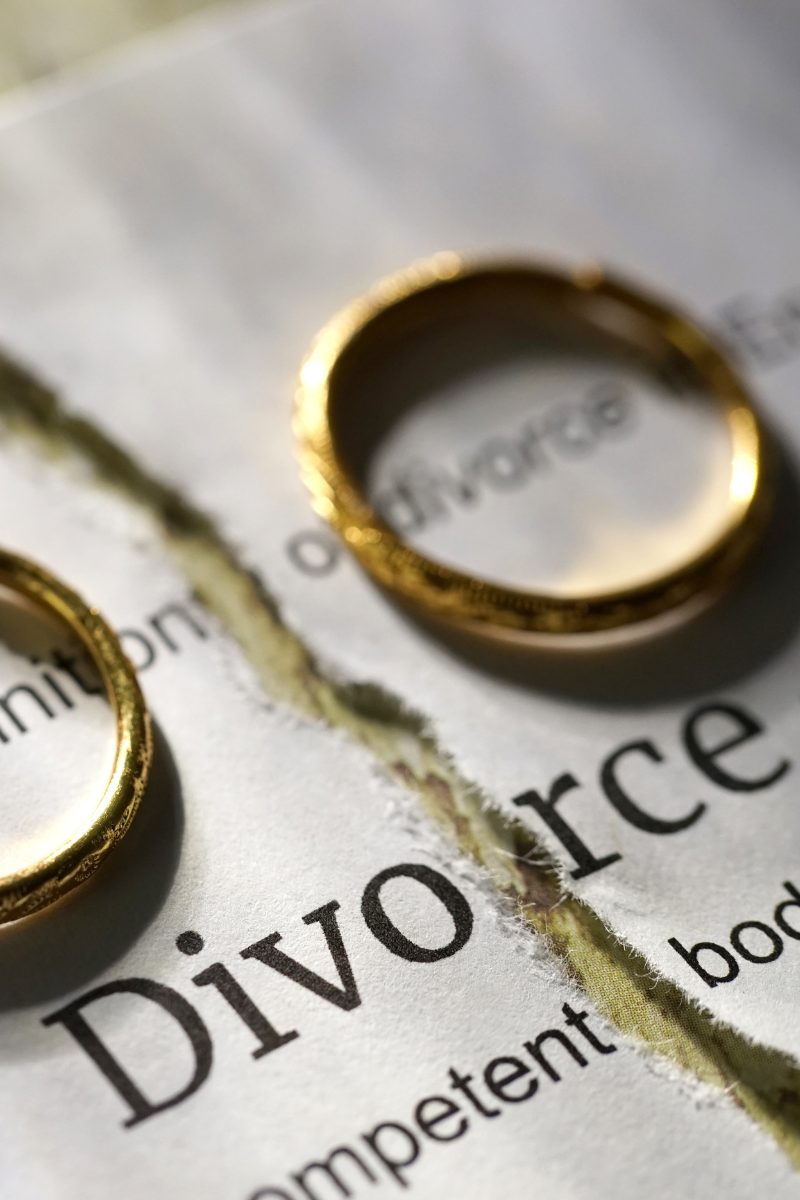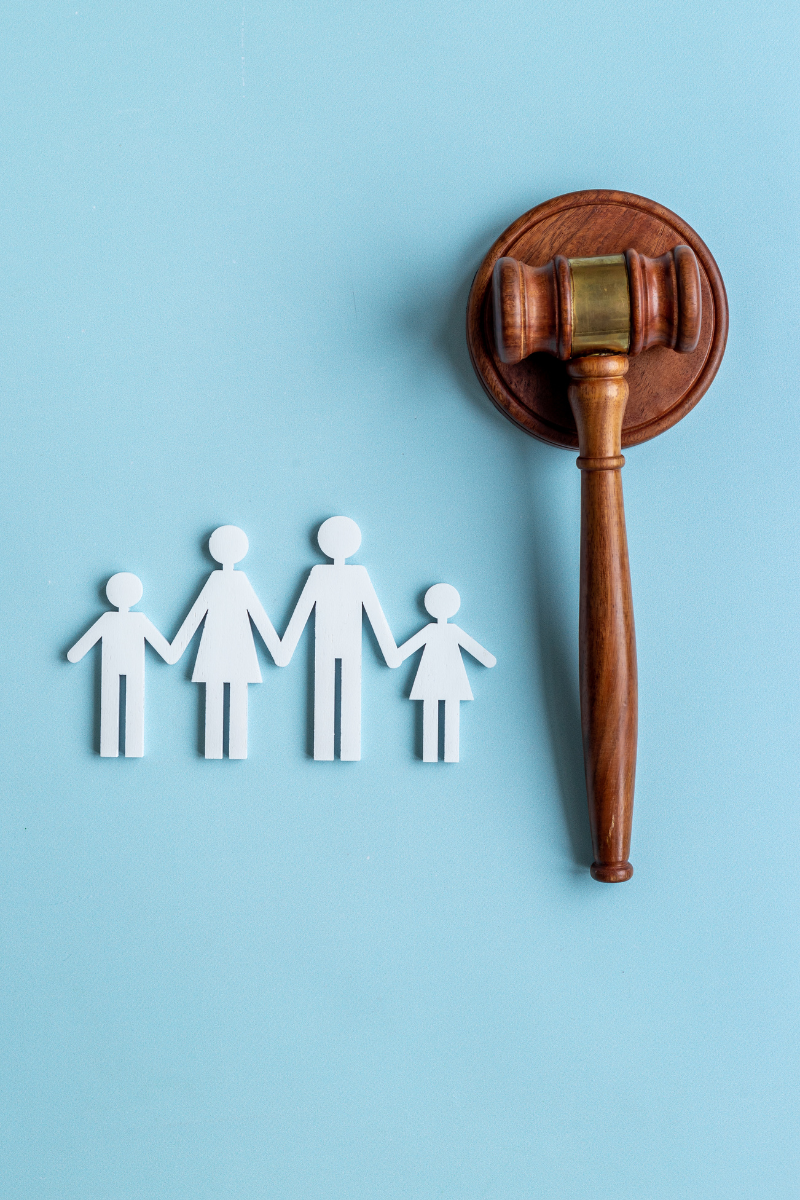Chicago Divorce Lawyer: Navigating High-Conflict Divorce
Divorce is never easy, but for some couples, the process becomes a battleground filled with conflicts over finances, parental responsibilities, and asset division. Studies estimate that 20% of divorces in the U.S. are considered high-conflict, involving prolonged legal battles and heightened emotional strain.
If you are facing a contentious divorce in Illinois, understanding your legal rights and options is crucial to protecting your future. At Masters Law Group, our experienced attorneys have successfully guided individuals through some of the most complex, high-conflict divorce cases.
This blog will explore what defines a high-conflict divorce, key legal considerations in Illinois, and strategies to manage the process effectively. Here’s what you need to know.
 Understanding High-Conflict Divorce
Understanding High-Conflict Divorce
A high-conflict divorce is typically characterized by persistent disputes, lack of cooperation, and heightened emotional tension between spouses. Common challenges in these cases include:
- Allocation of Parental Responsibilities – Battles over legal and physical custody, often involving accusations of parental alienation or neglect.
- Asset and Property Division Disputes – Disagreements over who gets what, especially in high-net-worth cases.
- Alimony and Child Support Conflicts – One spouse may attempt to hide income or dispute financial obligations.
- Restraining Orders and Allegations of Abuse – Orders of protection and allegations of domestic violence can complicate divorce proceedings.
- Prolonged Litigation – High-conflict divorces often involve lengthy court battles and increasing financial and emotional strain.
While some divorces can be resolved amicably through mediation, high-conflict cases often require aggressive legal representation to help ensure fairness and compliance with Illinois divorce laws. Let’s take a deeper look at some legal considerations.
1. Illinois Is a No-Fault Divorce State
Illinois operates under a no-fault divorce system, meaning neither spouse needs to prove wrongdoing—such as adultery or abuse—to file for divorce. Instead, the only legal grounds for the dissolution of marriage are irreconcilable differences. This means the relationship has broken down beyond repair. Even in high-conflict divorces, one spouse cannot prevent the divorce from moving forward by refusing to cooperate. As long as the legal requirements are met, the court will grant the divorce, allowing the process to proceed regardless of the other party’s objections.
2. Know Your Parental Rights 
Parental responsibility—formerly known as child custody in Illinois—is often the most contentious issue in high-conflict divorces. When determining the allocation of parental responsibilities, the court prioritizes the best interests of the child, taking into account factors such as:
- The child’s relationship with each parent and their emotional bond.
- Each parent’s ability to provide a stable, supportive home environment.
- Any history of domestic violence, substance abuse, or neglect.
- The willingness of each parent to foster a healthy relationship between the child and the other parent.
In extreme cases, one parent may engage in parental alienation, deliberately influencing the child to reject the other parent through manipulation or false claims. If this is suspected, the court may appoint a Guardian ad Litem (GAL) to investigate the situation and provide recommendations that serve the child’s best interests.
At Masters Law Group, our attorneys have Guardian ad Litem experience, helping ensure custody decisions prioritize the child’s well-being while protecting parental rights. If you’re facing a contentious parental responsibility dispute, our team is here to advocate for you and your child.
 3. Understand How Marital Assets are Divided
3. Understand How Marital Assets are Divided
Illinois follows the equitable distribution principle, meaning marital property is divided fairly—but not necessarily equally. In high-conflict divorces, disputes often arise over significant assets, including:
- Real estate and retirement accounts
- Business ownership and investments
- Hidden assets and fraudulent transfers
In cases where a spouse attempts to conceal assets or manipulate financial disclosures, forensic accountants may be brought in to uncover hidden funds. This helps provide transparency and an accurate assessment of marital assets, allowing for a fair and just property division by Illinois law.
4. Orders of Protection for Domestic Violence Allegations
When domestic violence is a factor in a divorce, a spouse may seek an Order of Protection (restraining order) to prevent contact and help ensure safety. These court-issued orders can provide immediate legal protection, restricting the accused party from approaching the petitioner, their home, workplace, or children.
However, in high-conflict divorces, false allegations of abuse can sometimes arise, complicating custody and legal proceedings. Such claims require a thorough legal examination, so neither party is unfairly disadvantaged. Working alongside a trusted attorney can help you navigate this complex legal area.
5. Consider Mediation for High-Conflict Divorce 
In Illinois, courts often encourage mediation to resolve disputes outside of litigation, even in high-conflict divorce cases. Mediation is a structured, confidential process in which a neutral third party (the mediator) helps both spouses communicate and negotiate solutions on parental responsibilities, child support, and property division. Even in contentious divorces, mediation can be helpful in situations where:
- Both parties are willing to engage in structured discussions, even if they disagree.
- There is a need to find common ground on parenting schedules or asset division.
- Both spouses are committed to reducing the emotional impact on children.
At Masters Law Group, we carefully assess whether mediation is a suitable option for our clients. Our experienced divorce attorneys provide strong legal representation when litigation is necessary to help protect your interests.
Strategies for Navigating a High-Conflict Divorce in Illinois
High-conflict divorces can be emotionally draining and legally complex, but having a clear strategy can help protect your rights and minimize stress. Here are some key strategies to help you navigate a high-conflict divorce effectively:
1. Gather and Organize Documentation: Strong documentation is key to protecting your interests. Keep detailed records of:
- Financial statements and tax returns to help ensure transparency in asset division.
- Child custody schedules and communication to support your parenting claims.
- Evidence of abusive or threatening behavior if safety concerns arise.
2. Minimize Direct Communication with Your Spouse: Hostile interactions can quickly escalate conflict. Communicate through legal counsel, court-monitored parenting apps, or mediation whenever possible.
3. Work with an Experienced Divorce Attorney: A skilled Chicago divorce attorney is essential in high-conflict cases. The attorneys at Masters Law Group provide strategic advocacy, legal guidance, and courtroom experience to protect your rights and compliance with Illinois divorce laws.
Working With Masters Law Group
At Masters Law Group, we understand that high-conflict divorces require more than just legal knowledge—they demand strategic advocacy, personalized solutions, and unwavering support. Our experienced attorneys are committed to guiding you through every stage while protecting your rights. Here’s how:
- Proven Experience in High-Conflict Cases: We have successfully handled divorces involving contentious custody battles, complex asset disputes, and misconduct allegations. Our team is equipped to manage aggressive litigation while protecting your best interests.
- Client-Focused Legal Strategies: No two divorces are the same. We take the time to understand your unique situation and develop a tailored approach—whether through negotiation, mediation, or courtroom representation.
- Comprehensive Family Law Services: From parenting time to asset division and post-divorce modifications, we provide full-spectrum legal support to help you confidently move forward.
We aim to help you navigate this difficult time with clarity and confidence. If you’re facing a high-conflict divorce in Illinois, our team is here to provide the legal guidance and advocacy you need to secure the best possible outcome.
Final Thoughts
Navigating a high-conflict divorce requires strategic planning and strong advocacy. Whether you’re facing disputes, having an experienced Chicago divorce attorney can help protect your rights and secure the best possible outcome. At Masters Law Group, we understand the complexities of high-conflict divorces and are committed to providing tailored legal strategies and dedicated representation. If you are going through a high-conflict divorce in Illinois, don’t navigate it alone.
Contact us today to schedule a consultation and take the first step toward a resolution.
Frequently Asked Questions (FAQs)
How long does a high-conflict divorce take in Illinois?
The timeline varies based on complexity. While an uncontested divorce can take as little as a few months, a high-conflict divorce can take over a year due to litigation, custody evaluations, and asset disputes. Having the skilled attorneys at Masters Law Group by your side can help protect your interests every step of the way.
What happens if my spouse is hiding assets?
If you suspect hidden assets, your attorney may request forensic accounting to uncover undisclosed income, property, or financial transfers. Courts impose penalties for failing to disclose assets.
Can I get sole custody if my spouse is abusive?
If domestic violence is a factor, the court will prioritize child safety. While sole allocation is not guaranteed, the court may impose restrictions such as supervised visitation or terminate parental rights in extreme cases.
What if my spouse is making false allegations against me?
False allegations of abuse or financial misconduct can impact your case. Work with Masters Law Group’s legal team to help gather evidence and defend against unfounded claims.









